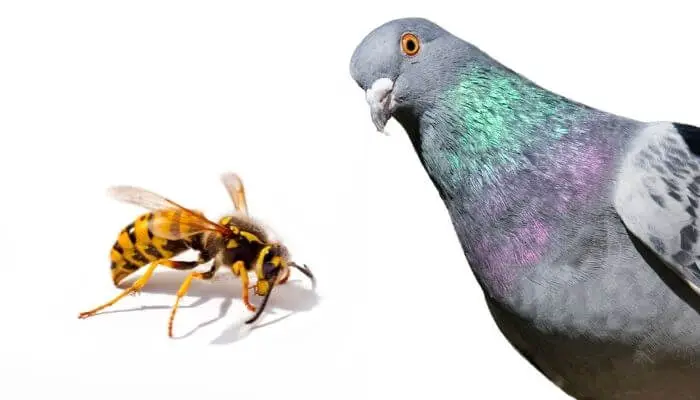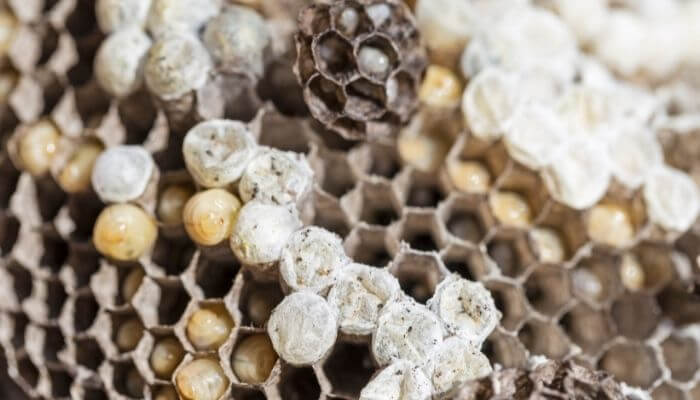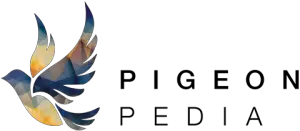Although they might seem an unpalatable meal, pigeons can and do eat wasps.
They won’t go out of their way to seek them out but pigeons are opportunistic and unfussy eaters so they’ll happily eat a wasp.

Wild Pigeons and Wasps
The issue of pigeons eating wasps is restricted to feral pigeons in general.
Domesticated birds may pick up a wasp as a snack but it is highly unlikely that pigeon owners will feed wasps to their birds.
Unlike other food items such as mealworms, wasps are not packaged up for owners to buy alongside their pigeon feed.
The Pigeon vs The Wasp
According to Landcare Research, pigeons are among the twenty-four species of bird (at least) that are known to eat wasps.
Pigeons are granivorous birds.
The pigeon’s beak is designed to make it easy to pick up of seeds, grains, nuts and berries and they will also eat some fruits and vegetables but can also cope with small insects including things like spiders and occasionally slugs.
Wasps do sting pigeons and you might think that is off-putting, dangerous and unwelcoming. It is highly unlikely, however, that a single sting would be that harmful to a pigeon. It would take an attack from a swarm of angry hornets to be fatal.

Of course, there will be occasions when a sturdy wasp won’t go down without a fight and might be able to pack a punch with a sting in order to be released by a hungry pigeon, but pigeons have a clever way of getting around this.
How Do Pigeons Eat Wasps?
When you think about a stinging wasp, it will be a fully grown, mature wasp that has reached adulthood.
Pigeons will have a go at these wasps if the opportunity presents itself, but the main way that the birds get around having to tackle stingers is by targeting wasp larvae and pupae instead.

You might see a pigeon or two spending time around a wasp nest out in the wild, and that will be because they are trying to get their beaks into the section that contains the young and growing wasps.
These are much easier to overcome and eat because, in immature wasps, the sting is not fully developed sting.
Targeting larvae and youngsters contained in a nest makes for a much more accessible and satisfying snack. It would take a lot of effort for a pigeon to chase and catch a solo adult wasp flying around outside with energy expended not offset by the nutrition gained.
Why Eat Wasps?
Pigeons don’t eat wasps just for fun.
Insects, in general, are very nutritious – this is recognized by some human cultures in the world where certain insects are a highly prized food.
According to Professor Seirian Sumner (UCL Biosciences) – “Over 2 billion people around the world consume insects as part of their diet, with 109 species being eaten across 19 countries. And wasps account for 4.8% of all insect species eaten globally.”
Wasps – pound for pound – contain a lot of protein. Wasp larvae have an exceptional dry protein mass (46%-81%). Wasps are also a good supply of essential amino acids and they also secrete antimicrobials.
Conclusion
In general, it is safe to say that yes, pigeons can and do eat wasps as part of their diet, but this tends to only be something that happens in the wild rather than in a domestic setting.
If you are a pigeon owner looking for new things to add to your bird’s diet, then we wouldn’t recommend trying to introduce wasps onto the menu.
There are many more options to fill your pigeon feeders that are more suitable for your pigeon, especially when you are able to control nearly every aspect of their nutrition.
Pigeons do eat wasps, but only in an opportunistic fashion when other foods aren’t easily accessible.
